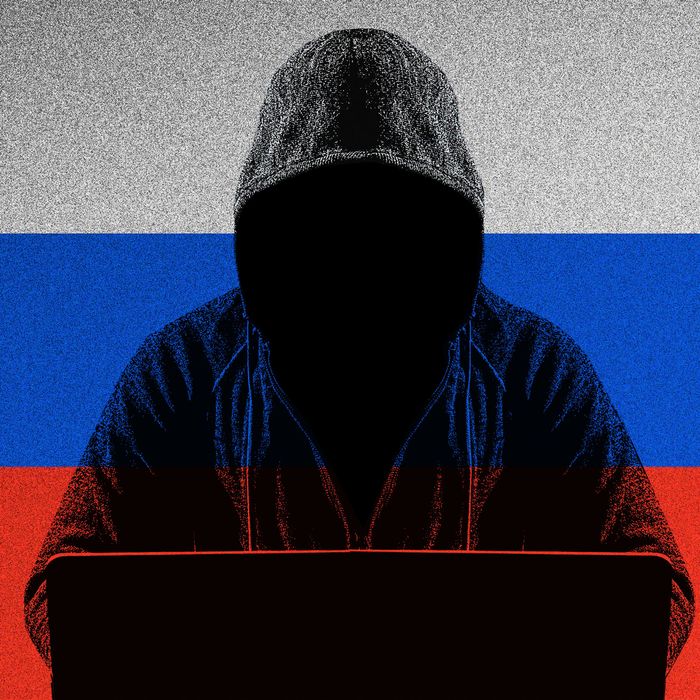Why Have Russian Hackers Been So Quiet in Ukraine?

Photo-Illustration: Intelligencer; Photo: Getty Images
From the 2016 election to a spree of ransomware attacks that disrupted private industry last summer, Americans are all too familiar with the chaos Russian hackers can create. But during the first two weeks of Russia’s Ukraine invasion, the cybercriminals in league with the Kremlin haven’t played a major role. Anton Dahbura, the executive director of the Johns Hopkins Information Security Institute, explains why we’ve seen so little from the country’s notorious electronic agitators, and whether they might become more aggressive in the coming weeks.
Russia hasn’t disabled Ukraine’s internet or disabled the country’s entire power grid. What sort of cyberattacks have Russia hackers successfully pulled during the war?
With cyberconflict, one never knows exactly what’s going on — we can only put pieces together from different sources that we trust. The impact of the hackers by Russia and its cronies on Ukraine has been relatively minor. We know there were some preliminary attacks on government systems a few weeks ago. Almost everybody extrapolated that that would turn into something more severe, but it hasn’t really materialized.
The other thing is it’s obviously not business as usual in Ukraine. When you think about retail operations, health care, education — all of those aspects of the Ukrainian society and economy have been severely disrupted, if they’re operational at all. It doesn’t make sense to try to shut down a store’s IT system if the store is not even open, or if there is no power to that area. So the impact of cyberattacks has changed, and to some extent has gone by the wayside.
Now, we’re also distinguishing cyberconflict from espionage. It’s also not clear if Russia has hooks into Ukrainian intelligence systems and communications systems, which is another potential aspect of this.
Is this kind of hacking something that’s better-suited for agitating during peacetime than in a hot war?
This is an interesting case study. Now you have all…


